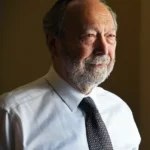Polyvagal Theory in Practice: Integrating Clinical, Medical, and Wellbeing Approaches

Polyvagal Theory in Practice: Integrating Clinical, Medical, and Wellbeing Approaches

Presented By
Recorded On
-
-
Location
-
On DemandSessions will be available On-Demand
This workshop is essential for clinical, medical, and wellbeing practitioners, offering a comprehensive exploration of Polyvagal Theory (PVT) and its applications in practice. Addressing the interconnectedness of mental and physical health is critical for reducing relapse rates from acute illnesses, mental health disorders, and promoting sustained recovery. According to the World Health Organization (WHO), integrating care models that address both mental and physical health leads to better overall health outcomes. Research highlights that untreated mental health issues can exacerbate physical health conditions and vice versa, emphasizing the need for a holistic approach to patient care. Wellbeing practitioners are vital in this integrated model by promoting overall wellness, optimizing performance, and maintaining balance in personal and professional lives.
PRESENTATIONS: Pain Management: Transforming Chronic Pain with Polyvagal Theory: Explore how chronic pain often stems from the nervous system’s survival states rather than structural damage. Learn to apply Polyvagal Theory to manage psychophysiological disorders and persistent pain, incorporating modern pain science, mindfulness, and Acceptance & Commitment Therapy (ACT) to promote recovery and wellness. Trauma and Addiction Treatment with the Felt Sense Polyvagal Model: Discover the Felt Sense Polyvagal Model™ (FSPM) that shifts the paradigm to a strength-based approach. Delve into how addictive and dissociative behaviors are adaptive responses to regulate the nervous system. Gain practical insights from Jan Winhall’s work on using somatic assessments to enhance therapeutic outcomes. From Pressure to Performance: A Polyvagal Approach to Optimizing Our Human Experience: Examine how the pressures of modern life influence our physiological state and performance. Understand and align with the body’s reflexive responses to enhance creativity, resilience, and problem-solving skills. Wellbeing practitioners will learn strategies to foster an environment of physiological safety that supports high performance and resilience.
- • Counselor
- • Marriage & Family Therapist
- • Social Worker
- • Substance Use Disorder Professionals
At the end of this course, participants will be able to:
-
Understand the Application of Polyvagal Theory in Pain Management: Learn how Polyvagal Theory can treat chronic pain by addressing the nervous system's role in physio-psychological states of survival.
-
Implement Mind-Body Interventions for Pain Recovery: Gain insights into mind-body interventions that promote recovery from persistent pain and psychophysiological disorders using modern pain science, mindfulness, and ACT.
-
Utilize the Felt Sense Polyvagal Model in Trauma and Addiction Treatment: Understand the Felt Sense Polyvagal Model™ (FSPM) and how it integrates Polyvagal Theory to address trauma and addiction as adaptive responses, enhancing current therapeutic modalities.
-
Assess and Enhance Physiological Safety in Clinical Practice: Learn methods to assess clients' capacity to regulate their autonomic nervous system using the Embodied Assessment and Treatment Tool™ (EATT) and apply these insights to improve therapeutic outcomes.
-
Optimize Performance through Polyvagal-Informed Strategies: Explore strategies to optimize human performance by aligning physiological states with intentions and creativity, particularly in high-pressure environments.
-
Garland, E. L., Froeliger, B., & Howard, M. O. (2014). Mindfulness training targets neurocognitive mechanisms of addiction at the attention-appraisal-emotion interface. Frontiers in psychiatry, 4, 173. https://doi.org/10.3389/fpsyt.2013.00173
-
Hong, S. J., Lee, D., Park, J., Namkoong, K., Lee, J., Jang, D. P., Lee, J. E., Jung, Y. C., & Kim, I. Y. (2018). Altered Heart Rate Variability During Gameplay in Internet Gaming Disorder: The Impact of Situations During the Game. Frontiers in psychiatry, 9, 429. https://doi.org/10.3389/fpsyt.2018.00429
-
Liu, S., Oshri, A., & Duprey, E. B. (2020). Heart Rate Variability Reactivity Moderates the Indirect Link Between Child Maltreatment and Young Adult Alcohol Use Problems Via Depressive Symptoms. The American journal on addictions, 29(2), 141–150. https://doi.org/10.1111/ajad.13004
-
Poli, A., Gemignani, A., Soldani, F., & Miccoli, M. (2021). A Systematic Review of a Polyvagal Perspective on Embodied Contemplative Practices as Promoters of Cardiorespiratory Coupling and Traumatic Stress Recovery for PTSD and OCD: Research Methodologies and State of the Art. International journal of environmental research and public health, 18(22), 11778. https://doi.org/10.3390/ijerph182211778
-
Porges, S. W. (2022). Polyvagal Theory: A Science of Safety. Frontiers in Integrative Neuroscience, 16, 871227. https://doi.org/10.3389/fnint.2022.871227
-
Porges, S. W. (2021). Cardiac vagal tone: a neurophysiological mechanism that evolved in mammals to dampen threat reactions and promote sociality. World Psychiatry, 20(2), 296.
-
Porges, S. W. (2021). Polyvagal Theory: A biobehavioral journey to sociality. Comprehensive Psychoneuroendocrinology, 100069.
-
Porges SW (2021). Polyvagal Safety: Attachment, Communication and Self-Regulation. New York: WW Norton.
-
Porges SW & Dana D (2018). Clinical Applications of the Polyvagal Theory: The Emergence of Polyvagal-Informed Therapies. New York: WW Norton.
-
Porges SW (2017). The Pocket Guide to the Polyvagal Theory: The Transformative Power of Feeling Safe. New York: WW Norton.
-
Porges SW (2011). The Polyvagal Theory: Neurophysiological Foundations of Emotions, Attachment, Communication, and Self-regulation. New York: WW Norton.
TPN.health has been approved by NBCC as an Approved Continuing Education Provider, ACEP No. 7267. Programs that do not qualify for NBCC credit are clearly identified. TPN.health is solely responsible for all aspects of the programs.
Trusted Provider Network, LLC is recognized by the New York State Education Department’s State Board for Mental Health Practitioners as an approved provider of continuing education for licensed mental health counselors. #MHC-0220.
TPN.health is approved by the California Association of Marriage and Family Therapists (Provider #1000101) to sponsor continuing education for LPCCs. TPN.health maintains responsibility for this program/course and its content. Course meets the qualifications for 3.5 hours of continuing education credit for LPCCs as required by the California Board of Behavioral Sciences.
Trusted Provider Network, LLC is recognized by the New York State Education Department’s State Board for Mental Health Practitioners as an approved provider of continuing education for licensed marriage and family therapists #MFT-0097.
TPN.health is approved by the California Association of Marriage and Family Therapists (Provider #1000101) to sponsor continuing education for LMFTs. TPN.health maintains responsibility for this program/course and its content. Course meets the qualifications for 3.5 hours of continuing education credit for LMFTs as required by the California Board of Behavioral Sciences.
Trusted Provider Network, LLC is recognized by the New York State Education Department’s State Board for Social Work as an approved provider of continuing education for licensed social workers #SW-0654.
TPN.health, #1766, is approved to offer social work continuing education by the Association of Social Work Boards (ASWB) Approved Continuing Education (ACE) program. Organizations, not individual courses, are approved as ACE providers. State and provincial regulatory boards have the final authority to determine whether an individual course may be accepted for continuing education credit. TPN.health maintains responsibility for this course. ACE provider approval period: 03/31/2022 – 03/31/2025. Social workers completing this course receive 3.5 Clinical continuing education credits. ASWB ACE Credit is not available in NY and NJ.
TPN.health is approved by the California Association of Marriage and Family Therapists (Provider #1000101) to sponsor continuing education for LCSWs. TPN.health maintains responsibility for this program/course and its content. Course meets the qualifications for 3.5 hours of continuing education credit for LCSWs as required by the California Board of Behavioral Sciences.
This course has been approved by TPN.health, as a NAADAC Approved Education Provider, for educational credits. NAADAC Provider #198061, TPN.health is responsible for all aspects of the programming.This course has been approved by TPN.health, as a NAADAC Approved Education Provider, for educational credits. NAADAC Provider #198061, TPN.health is responsible for all aspects of the programing. Counselor Skill Group: Counseling Services
-
Workshop Begins
-
Break-
-
Workshop Ends




